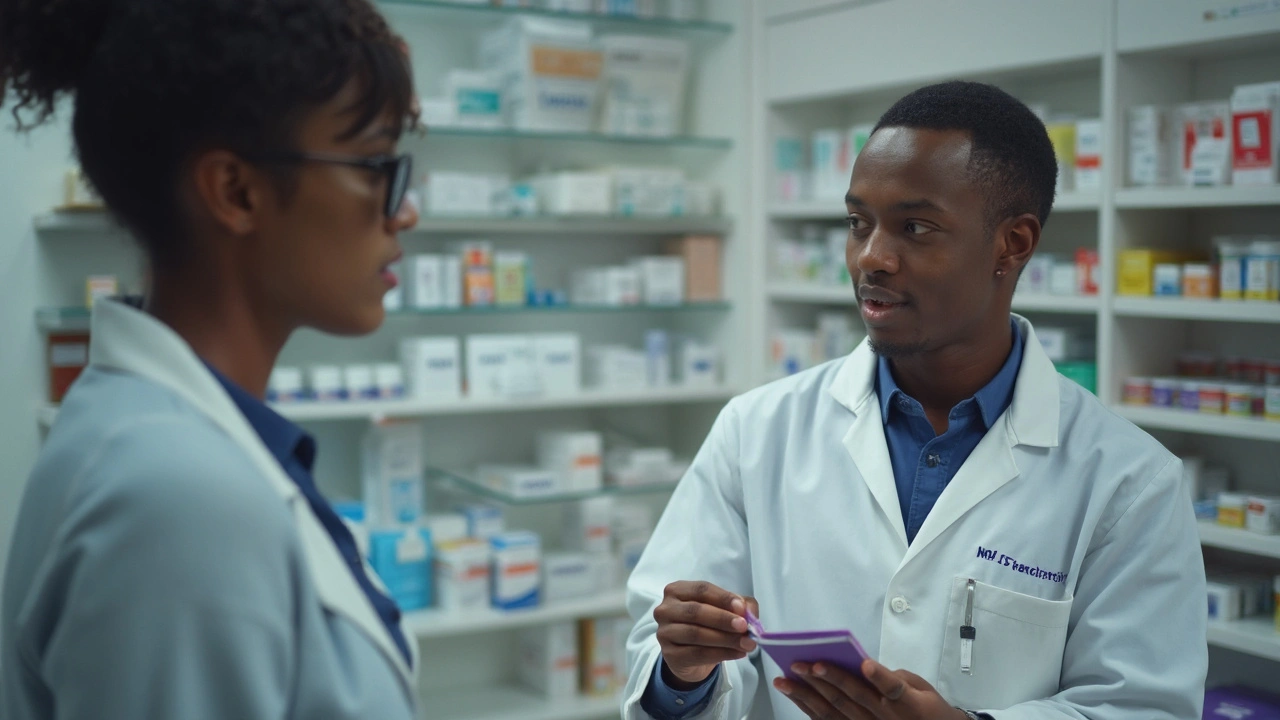Levaquin (Levofloxacin) — June 2025 Archive
Levaquin showed up as our main post for June 2025 because it's an antibiotic that often sparks questions and safety concerns. If you're taking it or your doctor suggested it, this archive page sums what we published: what it treats, real risks to watch for, and simple steps you can take to lower harm.
What Levaquin treats
Levaquin is a fluoroquinolone antibiotic used for infections like community-acquired pneumonia, complicated urinary tract infections, certain skin infections, and some sinus or bronchial infections. It kills a wide range of bacteria, so doctors use it when other drugs may not work or when the infection is serious. But wide coverage comes with trade-offs—it's powerful and not always the best first choice for mild problems.
Key risks
The biggest safety concerns are tendon damage (including tendon rupture), nerve problems (peripheral neuropathy), and possible effects on the heart rhythm (QT prolongation). People also report nausea, diarrhea, headache, and increased sensitivity to sunlight. The most serious effects can appear quickly and may not go away even after stopping the drug.
Certain groups face higher risk: people older than 60, anyone using corticosteroids, people with kidney problems, transplant recipients, and athletes who stress their tendons. If you take other medicines that affect heart rhythm or interact with levofloxacin—like some antiarrhythmics—or if you use antacids or dairy, dosing and timing matter.
If you have a prescription, check whether dosing should be adjusted for kidney function and whether a culture or urine test guided the choice. Unnecessary use raises the chance of side effects and antibiotic resistance.
Practical safety tips
Keep it simple: take the exact dose your doctor ordered and finish the course unless they tell you to stop. Avoid taking levofloxacin with antacids, multivitamins, or dairy within 2–4 hours—those products lower how much drug your body absorbs. Don’t use corticosteroids at the same time if you can avoid it; combined use increases tendon risk.
Watch for warning signs: new tendon pain, numbness or tingling in hands or feet, sudden muscle weakness, heart palpitations, or severe diarrhea. Stop the drug and contact your provider right away if these occur. Also avoid intense exercise while on the drug and for a few weeks after if you feel tendon pain.
When possible, ask your clinician if a narrower antibiotic could work. Culture-guided therapy is safer. Our full June post breaks down side-effect rates, real patient notes, and practical examples of safer use. If you're unsure about your prescription, bring those questions to a pharmacist or your doctor—small changes in timing, dose, or choice of drug can cut risk.
This archive entry captures the June 2025 report: focused, practical, and aimed at helping you use Levaquin more safely when it's necessary.

Levaquin: Uses, Side Effects, Warnings, and Tips for Safe Use
Jun 11 2025 / HealthLevaquin (levofloxacin) is a potent antibiotic from the fluoroquinolone class, often used to treat tough bacterial infections. The article dives into what makes Levaquin unique, how it stacks up against other antibiotics, the risks you can't ignore, and smart ways to lower your chances of side effects. Expect insight on real experiences, vital stats, and down-to-earth advice for anyone prescribed this medication.
VIEW MORE